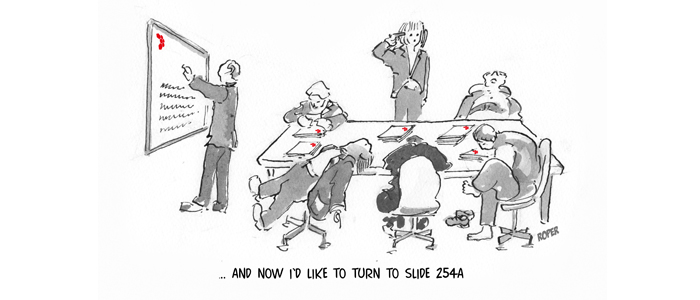Ever sat in a meeting, really wanting to contribute in some way but been unable to get a word in? Ever left a meeting running the ‘could have, would have, should haves’ of everything you didn’t say through your brain? I think we’ve all been there. There are lots of different reasons why you may not be able to speak up but often it’s because you just don’t know how to get your point across.
If that’s you, here are 9 tips for getting your voice heard in meetings:
- Prepare well. Check the agenda, find out what the main discussion topics will be. Read the briefing papers and be ready to contribute to those items relating to your area of expertise or experience. Jot down some bullet points and questions for each agenda item so you don’t forget what you wanted to raise during the meeting.
- Think about why you’re at the meeting. Who invited you and why do they want you there? If you’re not sure, ask. Your boss might want you to just observe and learn, in which case you probably won’t be expected to say much. However he might want you there to raise your profile and get more experience or because you’re the company expert on one of the agenda items. Each of these possibilities will require different behaviours from you.
- It can be tempting to be useful and offer take the minutes or write things up on the whiteboard, especially if you’re a woman or the youngest person in the room. Unless that’s what you’re there to do (see #2) avoid the temptation if you can. A head-hunter once told me that acting as scribe can count against you at an assessment centre unless you also fully take part in the day’s activities. Most scribes don’t. After all, if you’re focusing on getting the notes, minutes or actions right it doesn’t leave a lot of time for contributing to the meeting.
- Get in early and say something relevant and interesting as soon as you can, even if it’s asking a question. It will take the pressure off you and you’ll settle in to the rhythm of the meeting more quickly.
- When you do have the floor speak calmly, clearly and get to the point as quickly as you can.
- If someone interrupts you unreasonably, pause and ask if you can just finish the point you were making.
- Never start a sentence with an apology, even if it’s a figure of speech. ‘Sorry, can I just say….’ may put you on the back foot. ‘I would like to say …’ is much stronger.
- Raise your hand slightly, or lift your pen a little to signal to the chair that you would like to speak.
- If they’re moving on before you’ve had your say, raise your hand or lean forward and ask the chair if you can make a final point before that agenda item is closed. If you choose do this make sure that your intervention is good and valuable and that you’re not going over old ground or raising issues that have already been addressed.
Taking part in meetings can be tricky, as can running them. They can be stressful, especially if you’re new in your role or not very confident. These tips are what have worked for me but we would love to hear your thoughts and tips too – just share them below.
Many thanks to Jackie Fitzgerald of Alchemy Business Coaching for this post.
